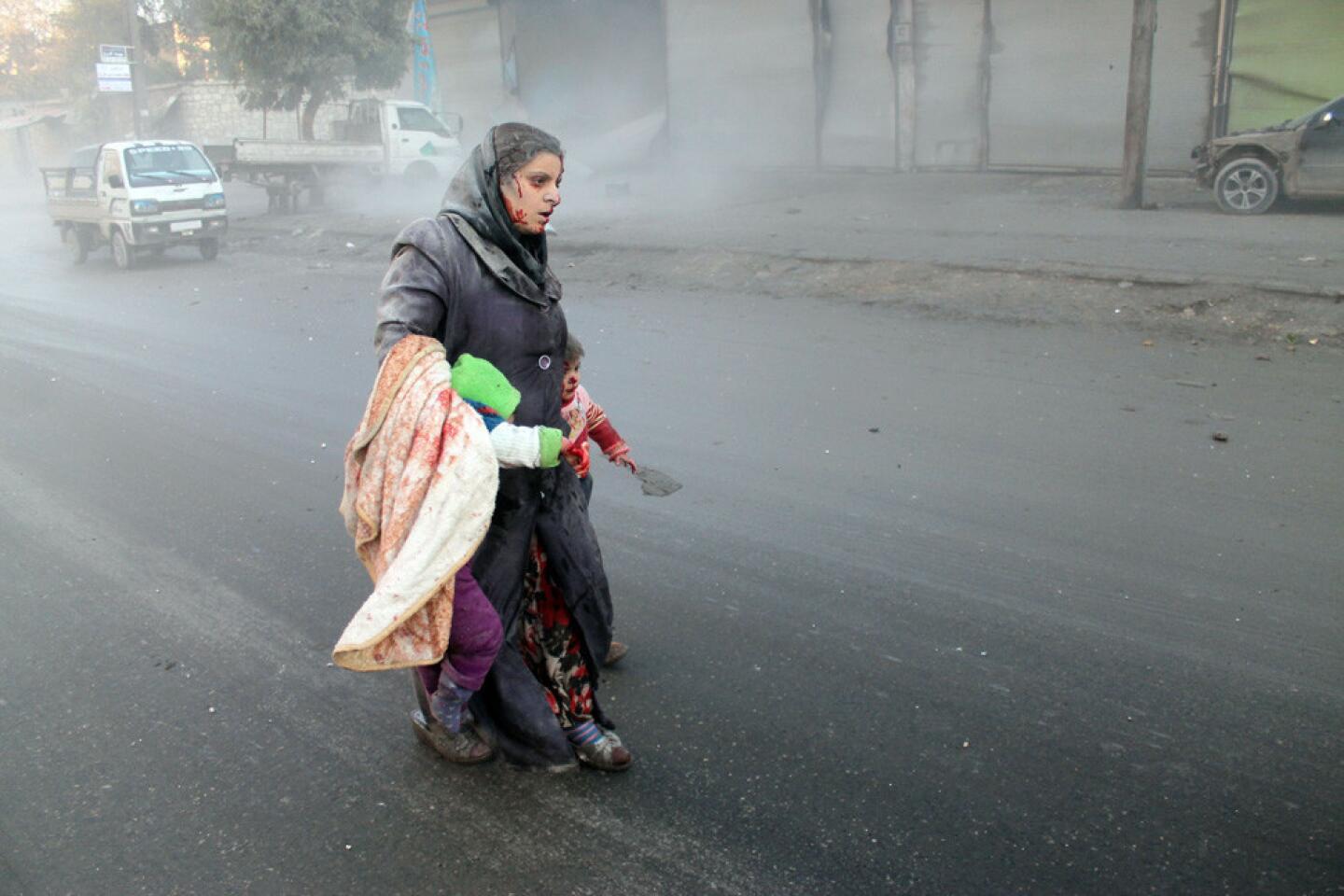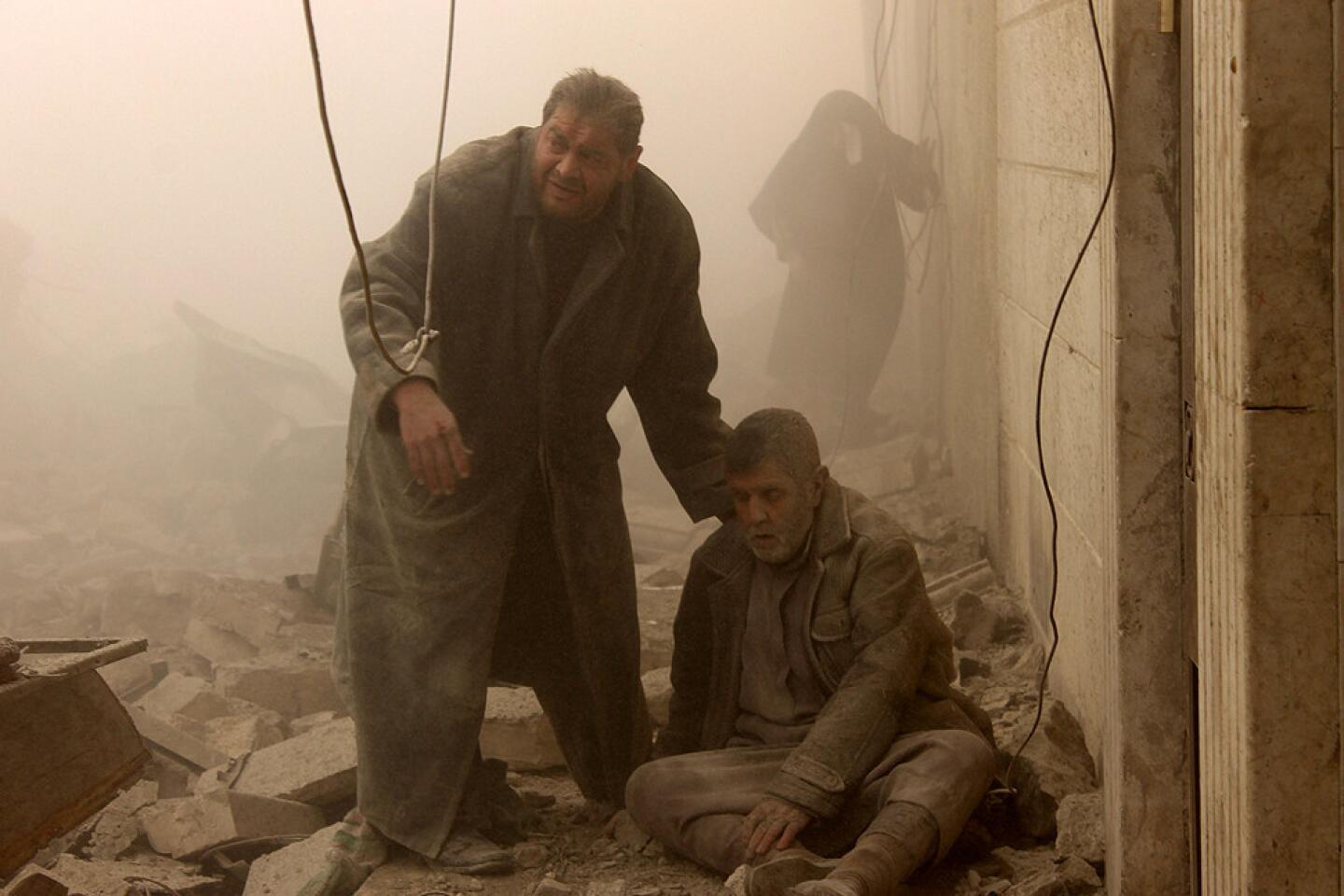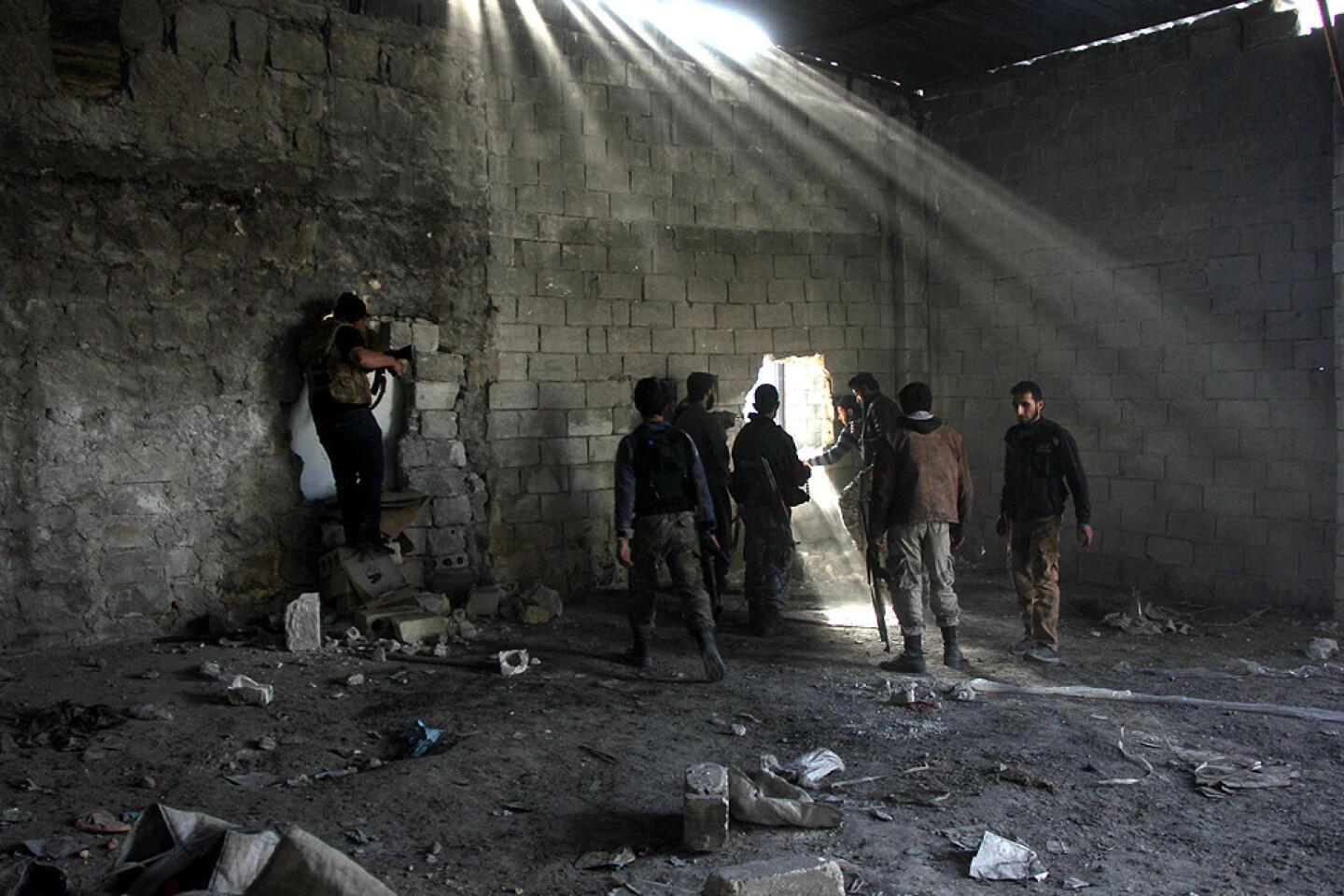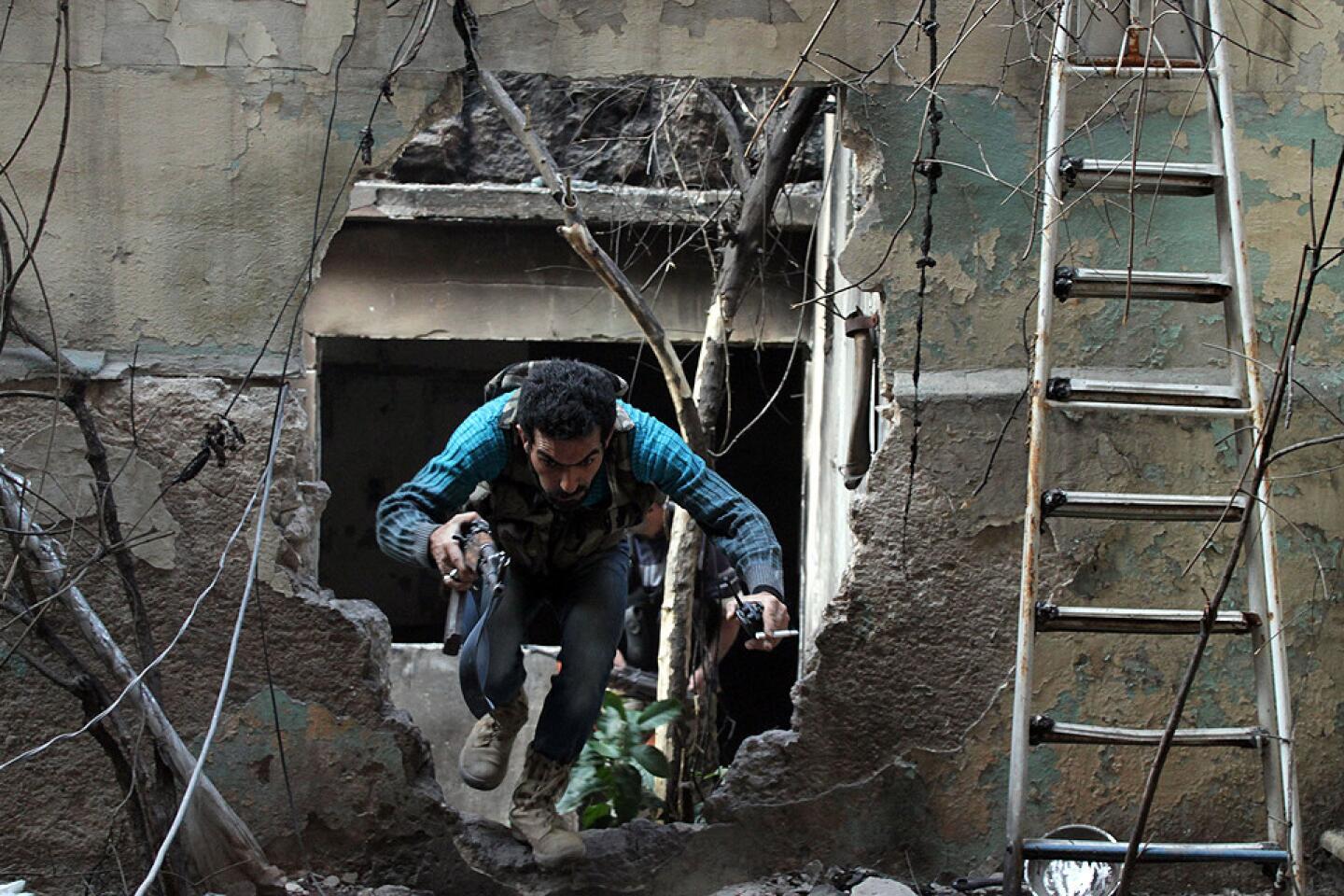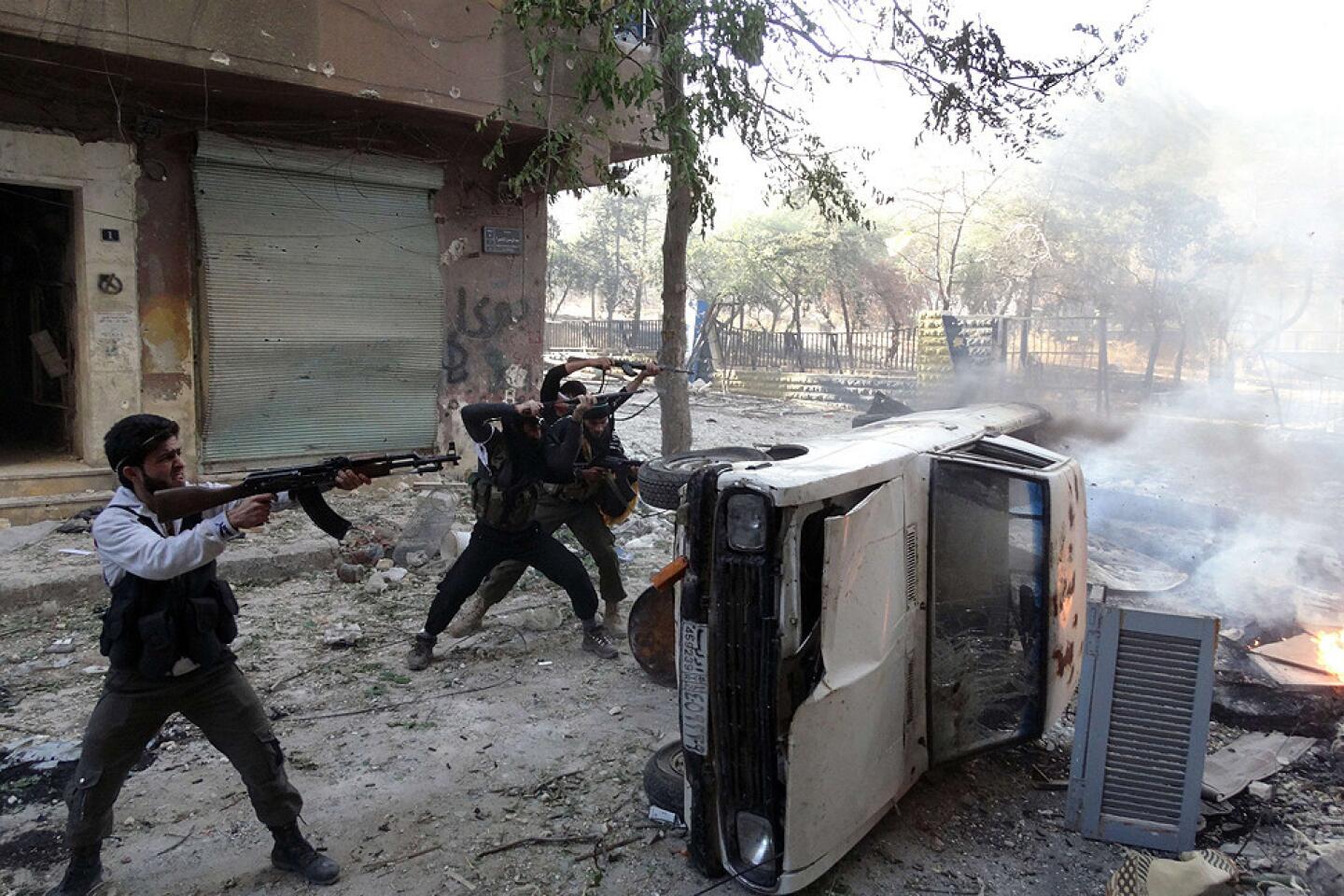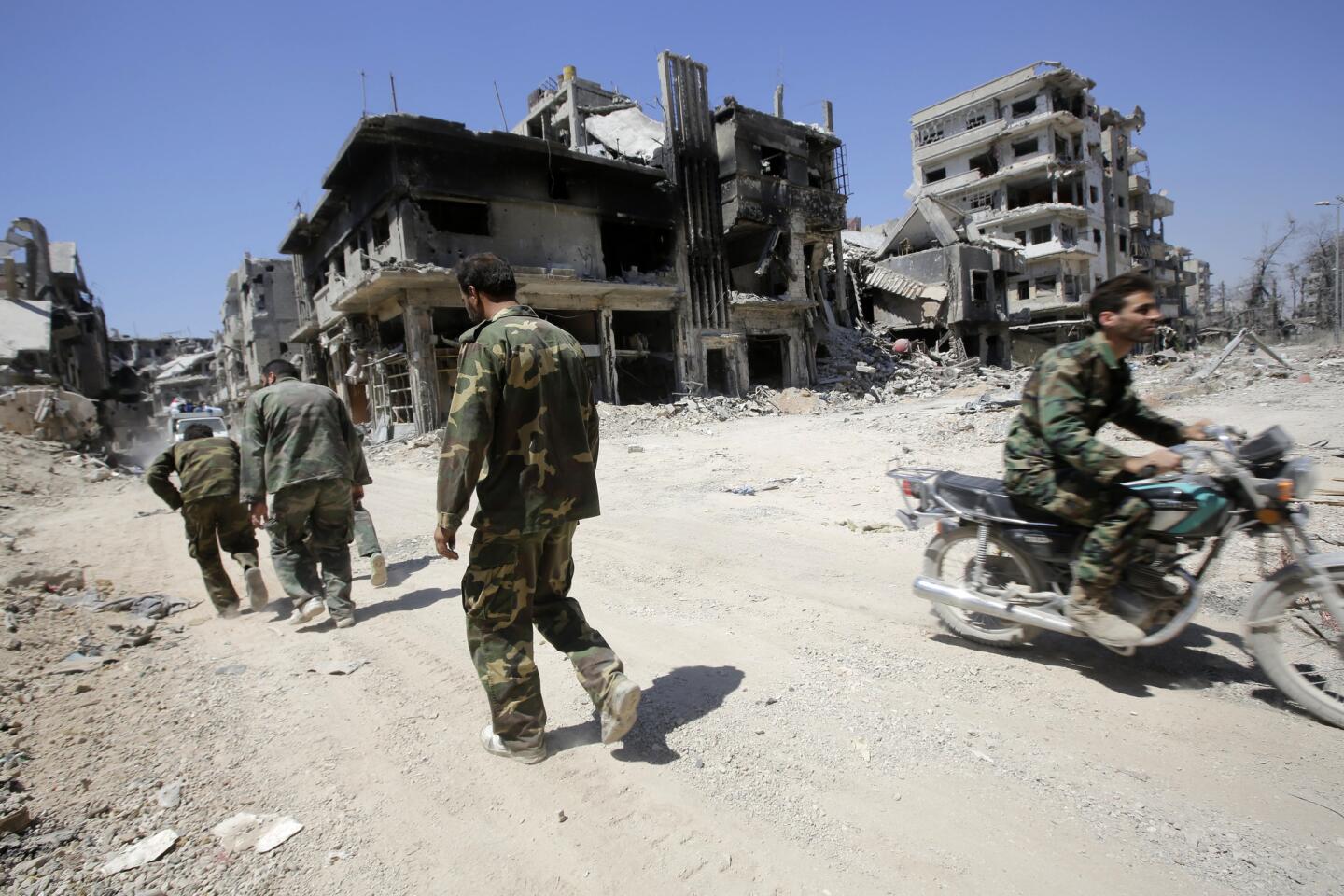Five reasons not to attack Syria, and one elegant solution
In my Sunday column, I argued that there were good reasons for the United States (and its allies, if any) to attack Syria for its government’s alleged use of chemical weapons, but also good reasons to be cautious. I came down on the side of limited military action, but reluctantly, with plenty of doubts.
Not surprisingly, the column drew a flood of responses from readers. Most disagreed with me -- also not surprising, since polls suggest public opinion is still running 2 to 1 against an attack.
The arguments against military intervention deserve good answers, and President Obama and his aides haven’t answered all of them well yet. Here are some of the points readers made:
The first question is evidentiary: Do we know that the Syrian government launched that chemical weapons attack? This isn’t like Iraq, where the weapons didn’t exist, and the notion that the rebels used chemical weapons against their own side is far-fetched. But the administration needs to present more evidence publicly that this attack came from the government side. “If there is any doubt about who did this, the answer has to be no,” Sue Smith tweeted.
There’s the moral argument that the United States shouldn’t be bombing anybody, or at least any country that hasn’t attacked us first. “What level of Syrian civilian casualties due to U.S. strikes is acceptable?” asked Ted Rosenblatt of Pacific Palisades. This is, of course, our current version of the ancient debate over what constitutes a just war. Would a U.S. military strike prevent more deaths than it caused? That needs to be part of the administration’s case too.
Then there’s the practical argument: Would U.S. missile strikes succeed in deterring Bashar Assad from launching further chemical attacks? “It’s not clear at all that an attack like this would truly operate as a deterrent,” Jim Osborne of Sherman Oaks wrote. Fair point; I think the administration’s logic is sound on this point, but complete certainty isn’t available.
There’s also the “inconsistency” argument: “We were quite comfortable when Saddam [Hussein of Iraq] gassed the Kurds,” objected Margo Kasdan of Seal Beach. Or, from Mike Benbrook: “So killing 1,000 Egyptians with tanks and bullets is OK, but killing 1,000 Syrians with gas is verboten?” But no two countries are exactly alike; if you want to insist on consistency in foreign policy, you’ll end up arguing for intervention everywhere or else intervention nowhere.
The most interesting comments to me, though, were the ones demanding a more thorough search for alternatives to military strikes. “Why not seriously consider … bringing the evidence to the U.N. Security Council and the World Court?” asked Martin Fiebert of Seal Beach. In fact, that’s likely to happen in the coming weeks.
But the most intriguing alternative came not from our readers but from Russian Foreign Minister Sergei Lavrov, who proposed putting Syria’s chemical weapons under international control and then destroying them. Now that would be an elegant solution.
ALSO:
To strike, or not to strike, Syria?
As Obama hesitates, Israel worries
Don’t use U.S. credibility as a reason to attack Syria
Follow Doyle McManus on Twitter @DoyleMcManus and Google+
More to Read
A cure for the common opinion
Get thought-provoking perspectives with our weekly newsletter.
You may occasionally receive promotional content from the Los Angeles Times.
